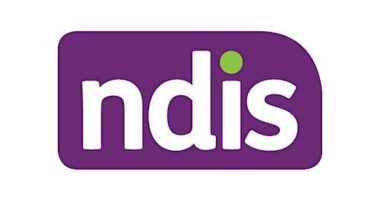Life insurance is a crucial aspect of financial planning, offering protection and security for your loved ones in the event of unforeseen circumstances. Two popular options in the realm of life insurance are voluntary term life insurance and whole life insurance.
While both serve the purpose of providing a financial safety net, they have distinct characteristics that cater to different needs and preferences. In this article, we’ll delve into the key differences between these two types of insurance, helping you make an informed decision about which one suits you better.
Table of Contents
What is the Difference Between Voluntary Term Life and Whole Life Insurance?
Voluntary term life insurance and whole life insurance are two primary categories of life insurance policies, each with its unique features and benefits.
Voluntary Term Life Insurance
Voluntary term life insurance is a policy that provides coverage for a specific period, known as the term. This type of insurance is often chosen to financially protect dependents during crucial life stages, such as paying off a mortgage, funding education, or providing income replacement. Here are some key aspects of voluntary term life insurance:
-
Affordability: Voluntary term life insurance is generally more affordable than whole life insurance, making it an attractive option for individuals with budget constraints.
-
Flexibility: It offers flexibility in choosing the term duration. Terms can range from 10 to 30 years, allowing you to align coverage with specific financial goals.
-
No Cash Value: Unlike whole life insurance, voluntary term life insurance does not accumulate cash value over time. It solely provides a death benefit to beneficiaries if the policyholder passes away during the term.
-
Renewal and Convertibility: Some policies offer the option to renew or convert to a whole life policy once the term expires. However, renewal premiums may increase based on age and health status.
Whole Life Insurance
Whole life insurance, also known as permanent life insurance, is a policy that offers coverage for the entire lifetime of the insured individual. This type of insurance provides not only a death benefit but also a savings component that accumulates cash value over time. Here are some key aspects of whole life insurance:
-
Lifetime Coverage: Whole life insurance offers coverage for life, ensuring that beneficiaries receive the death benefit regardless of when the policyholder passes away.
-
Cash Value Accumulation: A portion of the premium paid goes into a cash value account, which grows over time and can be borrowed against or withdrawn. This cash value component offers a degree of financial flexibility.
-
Stable Premiums: Premiums for whole life insurance remain consistent throughout the policyholder’s life, providing predictability in financial planning.
-
Dividends: Some whole life policies may offer dividends based on the insurance company’s financial performance. These dividends can be taken as cash, used to reduce premiums, or reinvested to increase the policy’s cash value.
Here is a table that summarizes the key differences between voluntary term life insurance and whole life insurance:
| Feature | Voluntary Term Life Insurance | Whole Life Insurance |
|---|---|---|
| Coverage period | Specific period of time, such as 10, 20, or 30 years | Lifetime |
| Premiums | Typically lower than whole life insurance | Typically higher than term life insurance |
| Death benefit | Lower than whole life insurance | Higher than term life insurance |
| Cash value | No | Yes, accumulates over time |
| Flexibility | More flexible, you can choose to renew or terminate the policy at the end of the term | Less flexible, you are locked into the policy for your lifetime |
Benefits of Each Insurance Type
Benefits of Voluntary Term Life Insurance
-
Affordability: Voluntary term life insurance is an excellent choice for individuals seeking temporary coverage at an affordable cost, especially during high-risk life stages.
-
Customizable Terms: The flexibility to choose the term duration allows policyholders to align coverage with specific financial goals, such as paying off debts or seeing their children through college.
-
Focused Coverage: Voluntary term life insurance offers targeted coverage when it’s needed the most, ensuring financial security for dependents during critical life events.
Benefits of Whole Life Insurance
-
Lifetime Protection: Whole life insurance provides peace of mind, knowing that beneficiaries will receive a death benefit regardless of when the policyholder passes away.
-
Cash Value Growth: The cash value component serves as a form of savings, which can be used for emergencies, opportunities, or supplementing retirement income.
-
Predictable Premiums: Premiums that remain constant throughout the policyholder’s life allow for accurate financial planning.
-
Financial Flexibility: The cash value can be accessed through loans or withdrawals, providing a safety net for unexpected expenses.
Also Check | 10 Best Pet Insurance In Ohio 2023 | Full Step-by-step Guide
FAQs
When deciding between these two types of insurance, consider factors such as your current financial situation, long-term goals, and the duration of coverage needed. If you’re seeking affordable coverage for a specific period, voluntary term life insurance might be suitable. On the other hand, if you want lifelong protection with a savings component, whole life insurance could be the better choice.
Some voluntary term life insurance policies offer the option to convert to a whole life policy before the term ends. However, this conversion might involve higher premiums due to changes in age and health status.
If you outlive the term of your voluntary term life insurance policy, the coverage will expire, and the policy will no longer be in effect. Some policies may offer the option to renew the coverage, but the premiums may increase based on your age and health.
Yes, you can borrow against the cash value of your whole life insurance policy. However, it’s important to repay the loan, including interest, to prevent a reduction in the policy’s death benefit. Failure to repay the loan could result in a decrease in coverage.









